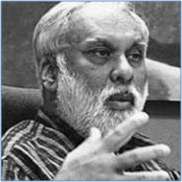
- In the 1970s and 1980s a significant part of his work was with the CDS/ISIS and MINISIS bibliographic information systems with ILO, Unesco, and the International Development Research Centre (IDRC). He is currently involved in bringing together an OERC (Open Education Resources for Cancer) Consortium as a joint initiative of iBharti Foundation and the International Network for Cancer Treatment and Research (INCTR).
I am looking forward to our meeting. It should be an amazing brainstorming—given the kind of people who are coming together - captured in a document, which will:
a) Inform the ‘institutionalization’ of People-Centered Internet and future activities at Stanford (& beyond)
b) Shape the global digital dividend initiatives.
Internet has reached a plateau. The 'ever widening, never ascending’ protocol that created the Internet needs to be central to our thinking about people-centered Internet and governance of a uniquely international institution. Internet is a trans-border institution which needs to driven by desire to improve the quality of life of people around the world (…for the people, of the people…) but more importantly governed (…by the people…). The inherent nature of TCP/IP has so far kept it so, but governance needs to be vigorously advocated.
On the other hand, it is very important to think alongside issues of broadband(ing), what we can do with Internet to improve the lives of people everywhere and more importantly how they can engage in their own development. Bandwidth and access should go hand-in-hand with improving lives and participatory development.
I am hoping that all the wonderful minds assembled will not think of Internet just as technology but a phenomenon that transforms lives and, therefore, think of what can be done to change the world for better.
Ericsson’s presence is important because they have been (for reasons of business) promoting eTransformation and 5G as technology to untether Internet. I hope we will be able to draw them out to talk about their work